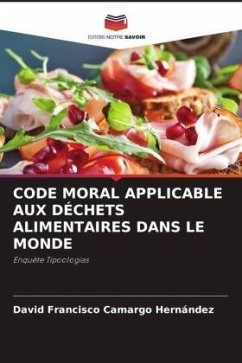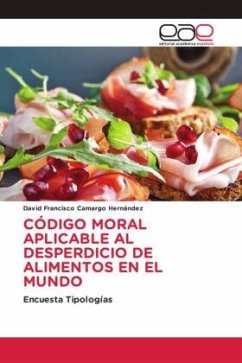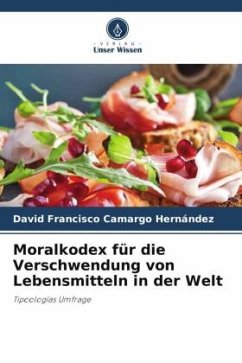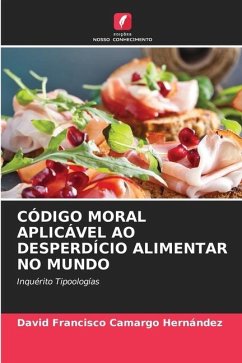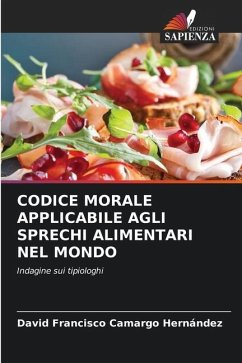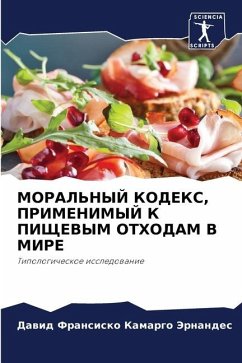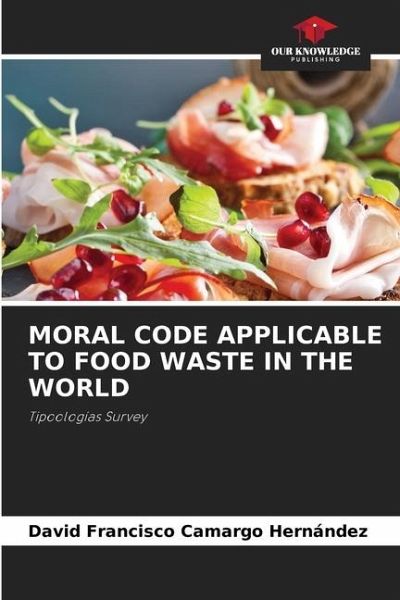
MORAL CODE APPLICABLE TO FOOD WASTE IN THE WORLD
Tipoologías Survey
Versandkostenfrei!
Versandfertig in 6-10 Tagen
53,99 €
inkl. MwSt.

PAYBACK Punkte
27 °P sammeln!
It is an immoral act to throw away food because its production involves a high expenditure of labor, water and other natural resources, and the loss occurs in the production, marketing, preparation and consumption of food. One third is wasted. In industrialized countries, wastage occurs in marketing and consumption, while in developing countries, which lack the necessary infrastructure, the greatest wastage occurs in the production, post-harvest and processing phases. The part that is wasted in consumption is called food waste, hence the importance of reducing these levels, since millions of p...
It is an immoral act to throw away food because its production involves a high expenditure of labor, water and other natural resources, and the loss occurs in the production, marketing, preparation and consumption of food. One third is wasted. In industrialized countries, wastage occurs in marketing and consumption, while in developing countries, which lack the necessary infrastructure, the greatest wastage occurs in the production, post-harvest and processing phases. The part that is wasted in consumption is called food waste, hence the importance of reducing these levels, since millions of people in poor nations suffer from famine and it is up to us to change our habits so as not to waste food.The environmental cost is very high, since food waste usually goes to landfills where it generates methane, deteriorating the environment. The circular economy is a good alternative that allows the transformation of waste into resources, through an action plan that considers the product throughout its life cycle, as well as the dehydration of food.



